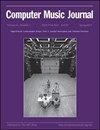Miriam Makeba
IF 0.4
Q4 COMPUTER SCIENCE, INTERDISCIPLINARY APPLICATIONS
引用次数: 0
Abstract
An iconic singer and an anti-apartheid activist, Miriam Makeba (b. 1932–d. 2008) was one of the most influential figures in the history of African popular music. Well before the advent of World Music as a marketing category, Makeba became a household name and mediated African music to diverse publics worldwide. Born in Johannesburg in 1932, Makeba absorbed the different musical genres of her surroundings, including African American jazz, gospel music, and the musical traditions of her Xhosa and Swazi family. She started singing professionally with the Cuban Brothers and later joined the Manhattan Brothers and the all-female group The Skylarks. Makeba participated in the musical King Kong, before making her major break outside of South Africa through her cameo appearance in the film Come Back, Africa, which documented the life of black people under the apartheid regime. Leaving South Africa to participate in screenings of the film, Makeba arrived in New York and began a prolific career, which resulted in several albums, television appearances, and a Grammy award for her album with her manager and mentor at that time, Harry Belafonte. Her position against the apartheid regime was manifested in her protest songs, supplemented by her political commentary, as well as in her public appearances, most notably in front of the UN Special Committee on Apartheid. Her marriage to civil rights activist Stokely Carmichael led to a decline in her career and the couple moved to Guinea, where Makeba became involved in the local music scene and in cultural production that is more attuned to the continent. Later in her life, Makeba regained her popularity in the United States by participating in the tour that followed Paul Simon’s Graceland album. After the collapse of the apartheid regime, Makeba returned to South Africa after thirty-two years in exile. During her lifetime, she paved the way for African musicians to succeed on global stages, and her legacy continues inspiring younger generations of African artists. Throughout the 20th century, Makeba was not the subject of much academic research. In recent years, however, scholars from diverse fields have begun to recognize the significance of her career and its intersection with key global processes in the 20th century, such as pan-Africanism, the Cold War, the struggle against apartheid, and African decolonization. To date, no general overviews have been written on Makeba’s work and, therefore, different sources must be consulted to obtain a full picture of her career.Miriam Makeba (1932-d)是一位标志性的歌手和反种族隔离活动家。2008)是非洲流行音乐史上最有影响力的人物之一。早在世界音乐作为一个营销类别出现之前,Makeba就已经是一个家喻户晓的名字,并将非洲音乐传播给全世界不同的公众。Makeba于1932年出生于约翰内斯堡,她吸收了周围不同的音乐流派,包括非裔美国人的爵士乐、福音音乐,以及科萨和斯威士兰家族的音乐传统。她开始与古巴兄弟一起演唱,后来加入曼哈顿兄弟和全女子组合云雀。Makeba参加了音乐剧《金刚》的演出,之后在南非以外的电影《回来吧,非洲》中客串出演,该片记录了种族隔离制度下黑人的生活。离开南非参加电影的放映,Makeba来到纽约,开始了多产的职业生涯,这导致了几张专辑,在电视上露面,并与她当时的经纪人和导师Harry Belafonte一起获得了格莱美奖。她反对种族隔离政权的立场体现在她的抗议歌曲中,辅以她的政治评论,以及她的公开露面,最引人注目的是在联合国种族隔离特别委员会面前。她与民权活动家斯托克利·卡迈克尔(Stokely Carmichael)的婚姻导致了她事业的衰落,这对夫妇搬到了几内亚,在那里,Makeba开始参与当地的音乐场景和更适合非洲大陆的文化制作。在她生命的后期,Makeba通过参加保罗·西蒙的《雅园》专辑之后的巡回演出在美国重新获得了知名度。种族隔离政权垮台后,流亡32年的Makeba回到了南非。在她的一生中,她为非洲音乐家在全球舞台上取得成功铺平了道路,她的遗产继续激励着年轻一代的非洲艺术家。在整个20世纪,Makeba并不是很多学术研究的主题。然而,近年来,来自不同领域的学者开始认识到她职业生涯的重要性,以及她与20世纪关键全球进程的交集,如泛非主义、冷战、反对种族隔离的斗争和非洲去殖民化。到目前为止,还没有关于Makeba作品的一般性概述,因此必须查阅不同的资料才能全面了解她的职业生涯。
本文章由计算机程序翻译,如有差异,请以英文原文为准。
求助全文
约1分钟内获得全文
求助全文
来源期刊

Computer Music Journal
工程技术-计算机:跨学科应用
CiteScore
1.80
自引率
0.00%
发文量
2
审稿时长
>12 weeks
期刊介绍:
Computer Music Journal is published quarterly with an annual sound and video anthology containing curated music¹. For four decades, it has been the leading publication about computer music, concentrating fully on digital sound technology and all musical applications of computers. This makes it an essential resource for musicians, composers, scientists, engineers, computer enthusiasts, and anyone exploring the wonders of computer-generated sound.
Edited by experts in the field and featuring an international advisory board of eminent computer musicians, issues typically include:
In-depth articles on cutting-edge research and developments in technology, methods, and aesthetics of computer music
Reports on products of interest, such as new audio and MIDI software and hardware
Interviews with leading composers of computer music
Announcements of and reports on conferences and courses in the United States and abroad
Publication, event, and recording reviews
Tutorials, letters, and editorials
Numerous graphics, photographs, scores, algorithms, and other illustrations.
 求助内容:
求助内容: 应助结果提醒方式:
应助结果提醒方式:


